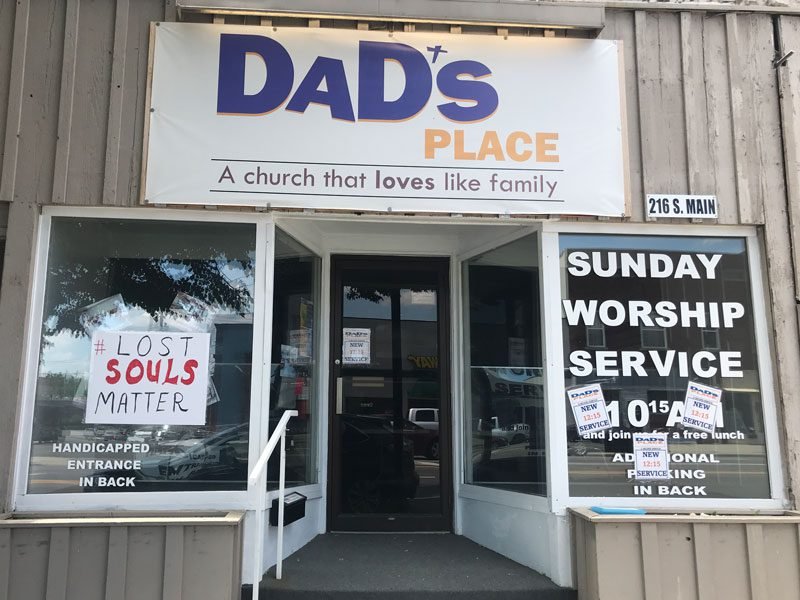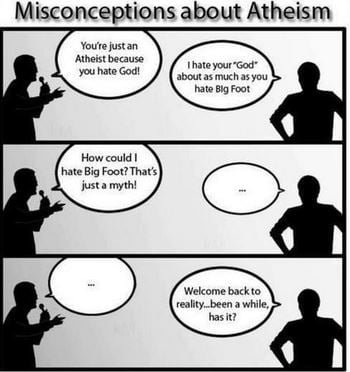
Dad’s Place is an Evangelical church in Bryan, Ohio pastored by Chris Avell. I am familiar with the church and its pastor, having had numerous conversations with Avell. I live five miles south of Bryan — my birthplace. I have a thorough understanding of the local political and religious scene.
Avell was recently criminally charged with violating the city of Bryan’s zoning laws. This conflict led to Avell hiring First Liberty Institute to represent him. First Liberty recently sued Bryan on Avell’s behalf. It will be interesting to see how this matter unfolds and is resolved.
This story has received national attention. Avell and First Liberty made the rounds speaking to various conservative news networks. Suggestions that Avell and Dad’s Place are being “persecuted” are absurd, but it seems, at least to me, that the city of Bryan is violating their constitutional rights — zoning issues notwithstanding. Bryan has stepped in it big time, and I suspect it is going to cost them a lot of money to get the proverbial shit off the bottom of their shoes. All the parties involved in this conflict claim to be Christians, so this is not secular government persecuting a church and its pastor. This is, at best, a Christian vs. Christian conflict.
Recently, Hemant Mehta, the Friendly Atheist, wrote a scathing post about Chris Avell and Dad’s Place. I disagree with most of what Mehta wrote, but I want to focus on one specific claim made in his post:
“Dad’s Place” isn’t really a church. It’s technically a video arcade called “Crane N Able’s Mini Claw Mania”—clever name!—which is why it was allowed to open up inside a business district. In 2020, Avell requested permission to set up a church inside the building and the city gave it to him with the understanding that he would abide by the city’s zoning laws.
Mehta’s statement is, to put it bluntly, is absurd. Of course, Dad’s Place is a church. It is a legally recognized church, one that meets all the IRS’ requirements for a group to be considered a church for tax purposes. The state of Ohio considers Dad’s Place a church too, as does the City of Bryan. I have never heard a local person say “Dad’s Place is not a ‘real’ Church.” Here’s the thing: the government goes out of its way to avoid defining the word “church.” The general rule is this: a church is a church if it says it is a church. How could it be otherwise? Religious belief and practice are so varied that it is impossible to come up with an exact definition of the word “church.” Regardless, Dad’s Place is a church.
Mehta would have his readers believe that Dad’s Place is really a video arcade. Mehta knows little to nothing about Dad’s Place and its pastor. I suspect he’s never been to Bryan, Ohio, nor physically viewed the building in which Dad’s Place meets. Had he done so, he would have learned that the video arcade is in a small space on the Main St front of the building. This space was previously used by a photography shop, and when I was a boy in the 1960s, it was a barbershop. What Mehta evidently didn’t know is that Dad’s Place meets in the back of the building — a large space that has its own entrance in the alley. This space has been used by other religious groups in the past. In the 1990s, the space was used by a group of Evangelicals for a youth center that featured contemporary Christian music (CCM) and rock.
Further, Mehta seems to lack a working knowledge of what the word “church” means to Evangelicals. The “church” is not a building, it’s the people, the congregation. Buildings are where the “church” meets, and the “church” is a “church” any time two or three people are gathered in the Lord’s name. I was an Evangelical pastor for twenty-five years. I held church services outside, in bowling alleys, roller rinks, canoe liveries, gymnasiums, parking lots, and, yes, actual “church” buildings. Did we stop being the “church” when we met in other than Mehta-approved buildings? Of course not.
Note: As the picture above from 2020 shows, Dad’s Place originally used the front part of the building for its services.
Bruce Gerencser, 66, lives in rural Northwest Ohio with his wife of 45 years. He and his wife have six grown children and thirteen grandchildren. Bruce pastored Evangelical churches for twenty-five years in Ohio, Texas, and Michigan. Bruce left the ministry in 2005, and in 2008 he left Christianity. Bruce is now a humanist and an atheist.
Connect with me on social media:
Your comments are welcome and appreciated. All first-time comments are moderated. Please read the commenting rules before commenting.
You can email Bruce via the Contact Form.

